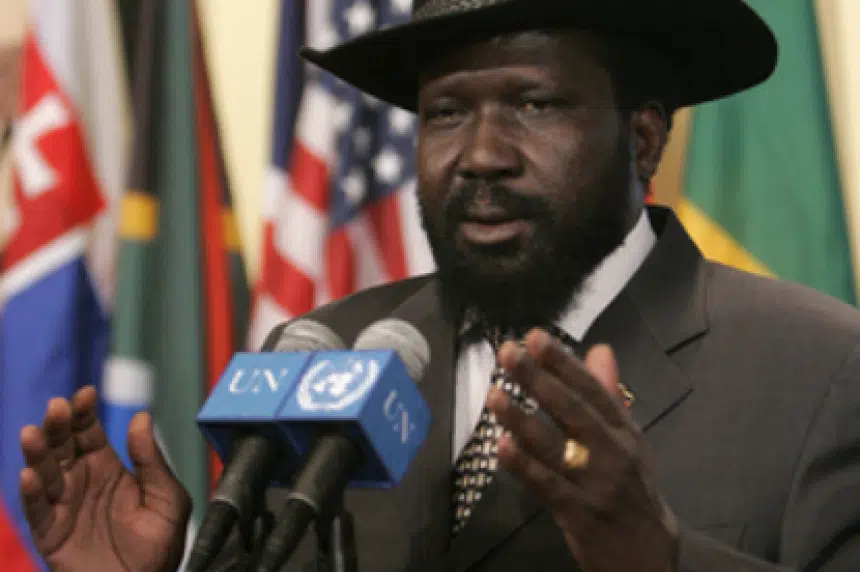For the past 20 months, Senos Timon has been in Saskatoon watching civil war tear up his home country of South Sudan.
“We are here. We feel safe because we know what’s going to happen tomorrow, go to work, go to school, have that life. But watching what is happening back there is very painful because we still have lots of family back home,” Timon said.
That pain has changed into a cautious optimism after a peace agreement was signed between South Sudanese President Salva Kiir and the rebel leader Riek Machar, Kiir’s long-time rival. The agreement calls for a cease fire within 72 hours and the formation of a transitional government within 90 days. The Guardian reports the agreement also bars “actions that may impede or delay the provision of humanitarian assistance, or protection to civilians, and restrict free movement of people”.
“It means a lot to the people of South Sudan. At least it brings a peace of mind to understanding at least this senseless war, at least its coming to an end,” Timon said.
Since the civil war broke out in December 2013, many of the 11 million people who live in the country have been pushed to the brink of starvation. Millions of people have fled their homes and thousands have been killed.
“We’ve been in touch with most of the family members on a regular basis. The situation is not very good leading to this point of signing this agreement. A lot of attacks happen frequently,” Timon, whose hometown is near the border with Uganda, said.
“There’s a lot of uncertainty where even some of the areas that aren’t directly impacted by the fighting but indirectly things are very bad because most of the roads leading from Uganda to South Sudan are where they access goods and they are very obscured.”
President Kiir has led South Sudan since it seceded from Sudan in 2011. Previous to that time there were generations of war after Sudan (which formerly held South Sudan) achieved independence in 1956. In 1983 the second Sudanese civil began and did not end until the Comprehensive Peace Agreement of 2005. It was during that civil war that Timon had to flee.
“The reason why I left South Sudan is due to the civil war that last for over 21 years … A lot of lives were lost during those 21 years,” Timon explained. “The government forces were looking for young men to be recruited to the forces whether you like it or not, you would be abducted by force and taken away from your parents … That’s what led myself to leave the country.”
“The reason why I left South Sudan is due to the civil war that last for over 21 years”- Senos Timon
After living through that conflict and watching, from abroad, as his country descended back into civil war, Timon said he is ready for peace and he believes his country is too.
“Some people were born in war and grew up in the war and never experienced peace in their life,” he said.
“Southerners, we have the belief that eventually South Sudan will overcome this. We will learn from the lessons of all of these conflicts.”











